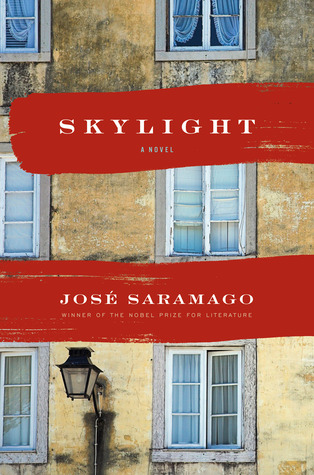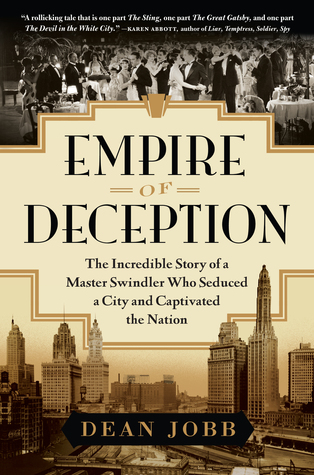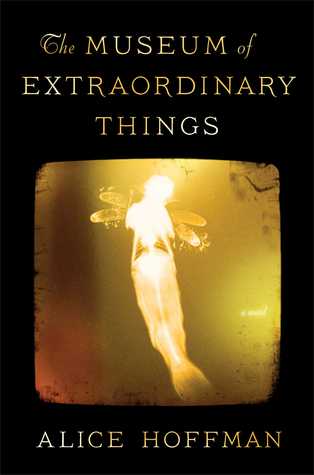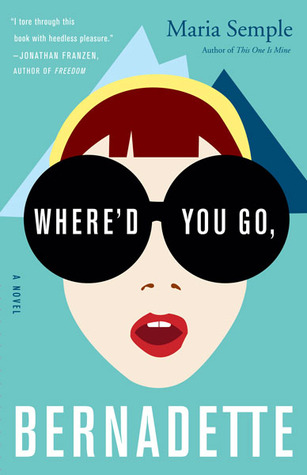Why hello out there! Can you hear me? Probably not. Though this isn't a book review, I thought it might be a fun thing to include on the blog for this week. A while ago, I decided to embark on
PopSugar's 2015 Reading Challenge, and I wanted to share my progress so far! Here are the categories, how I've filled them, and how I'm planning to fill them.
Completed
-A book with more than 500 pages. Done! I read
The Untold History of the United States earlier this year, and it clocked in at a whopping (and dense!) 784 pages. Some of that page count is references, but the content still took up significantly more than 500 pages. Fun fact: Peter Kuznik, one of the authors, is a professor at the university I attended and now work at! Go AU!
-A book published this year. Easy!
The Secrets of Sir Richard Kenworthy, because I love me a good historical romance and Julia Quinn is one of my favorites for a light and fast read. This one came out in January.
-A book with a number in the title. This one was a little harder, but I did read
Island of a Thousand Mirrors recently, and that counts, because of the "Thousand" part. Right? Right.
-A book with nonhuman characters. I read
The Emerald Talisman back in March, and it has vampires in it. I hated it. The review can be found
here.
-A funny book. That would be
Where'd You Go Bernadette, which had me giggling to myself on several occasions. Definitely recommended! Read the review
here.
-A book by a female author. This might be hard for some, but not for me, because for some reason I seem to unconsciously favor female authors. But for now, let's go with
Bread & Butter by Michelle Wildgen, which was a great character-driven book that revolves around a trio of brothers in the restaurant business.
-A mystery or thriller. Well, I finally got around to reading
Inferno, so I guess that counts for this!
-A book with a one-word title. That's an easy one, too. I read
Sand this spring and absolutely loved it. It's a fabulous science-fiction read in a really interesting setting with a great cast of characters. I made the boyfriend read this one, and he really enjoyed it, too.
-A book of short stories. I have a few candidates for this one; I was originally going to just go with
Small Plates because I happened to pick it up from the popular reading section a the library, but after reading
The Assassination of Margaret Thatcher, I feel like I have to give that a shout out, too. Review for
The Assassination of Margaret Thatcher is
here.
-A book set in a different country. Another easy category, for which I can take my pick from a variety of books. I love reading books set in different countries, because I like to get a glimpse of places I will likely never go myself. So for this one, let's go with
Home is a Roof Over a Pig, which is a memoir set in China.
-A nonfiction book. Again, not a hard one; I tend to read a lot of nonfiction. But one that comes to mind that I
really enjoyed is
Careless People, which is about a murder that took place in the 1920s and how it might have influenced F. Scott Fitzgerald when he was writing
The Great Gatsby.
-A book based entirely off its cover. Ugh, what a disaster this one was! I read
The Last Original Wife based on the cover, and I hated it. It looked so beachy and light and lovely, and it was a disaster that made me angry. You can read my review of it
here.
-A memoir. I read a lot of these, but for this particular category, let's go with
All the Fishes Come Home to Roost, which is Rachel Manija Brown's memoir about growing up as an American kid in an ashram in India.
-A book you can finish in a day. Ohhh, easy one. I plowed through
The Master Magician in a few hours, but found it sadly lacking in comparison to the first two books in the trilogy.
-A trilogy. I devoured and adored Rae Carson's Girl of Fire and Thorns trilogy early this year, which is made of
The Girl of Fire and Thorns, The Crown of Embers, and
The Bitter Kingdom. These were some of the first books I read this year, and I absolutely loved them. I'll definitely read them again, and they really got me back in the writing mood!
-A book set in the future. I pretty much inhaled
These Broken Stars over Spring Break. It's a beautiful young adult sci-fi story with a wonderfully worked romance aspect, and I can't wait to read the companion books.
-A book with a color in the title. Well, that would have to be
Scarlet, Marissa Meyer's awesome sci-fi adaptation of Little Red Riding Hood, which picks up where her sci-fi version of Cinderella,
Cinder, left off. I can't wait to get to
Cress (which I've been putting off so as to eke out as much enjoyment as possible before
Winter comes out--it cannot come soon enough!) and continue this series!
-A book with magic. The magical
Cobweb Bride definitely fits this category. It got off to a slow start, but was utterly enchanting (haha, I'm so funny) by the end.
-A book by an author you've never read before.
Burial Rites by Hannah Kent fits this. I liked it, but it wasn't as mind-blowing as it was made out to be.
-A book that was originally written in a different language. I'm currently reading
Skylight by Jose Saramago. It's a beautiful character-driven novel that was originally written in Portuguese and wasn't published until after the author's death because of an early snafu with a potential publisher. I'm enjoying it so far.
-A book set during Christmas. I
hate books that are set during Christmas. I find them to be really gimmicky. But I did read
Married by Midnight earlier this year, not realizing at first that it was set during Christmas. It was okay, I guess, but it didn't leave me rushing to pick up the others in the series.
-A book written by an author with your same initials. Well, my initials are CH, so I'm going with
The Paper Magician by Charlie Holmberg, which was a great Victorian-style fantasy about a girl who learns paper magic and has to save her tutor after his heart is literally stolen out of his chest. I loved it.
Still To Go
-A classic romance. I'm planning on squeezing in
Wuthering Heights at some point, but I haven't gotten around to it yet.
-A book that became a movie. I'll be filling this one with
The Monuments Men, which has been on my Kindle for ages but I haven't opened yet. I don't actually read a lot of books that become movies, so this one was a harder category to find a candidate for.
-A book written by someone under 30. Oh, this was a hard one to find a candidate for, because all of the authors I thought were really young are actually older than I thought! Oi. So, very reluctantly, I have decided to take up Veronica Roth's
Divergent. I've avoided it until now, but now it seems to have become unavoidable.
-A popular author's first book. I wanted to go with a
big author for this one, and because Terry Pratchett died recently, I've settled on
The Carpet People.
-A book from an author you love but haven't read yet. Well, I absolutely
adore Tamora Pierce, but for some reason I haven't read
Battle Magic yet, so that will fill this category.
-A book a friend recommended. Uhm...I don't know about this one yet. I'll have to ask around.
-A Pulitzer Prize-winning book. Like pretty much everyone else out there, I'm going to knock this one out with
All the Light We Cannot See.
-A book based on a true story. I think I'm going to go with
Seabiscuit for this one. I think that counts. The "based on" bit confuse me somewhat.
-A book at the bottom of your to-read list. My to-read list is in a constant state of flux and doesn't really have a concrete "bottom," so at some point I'll just pick the most recently added book (which is, by default, at the bottom) and read that.
-A book your mom loves. As my mother drunkenly told an Australian tourist while we were in Venice for my sister's wedding, her favorite book is
The Thorn Birds, so I guess I'll be reading that for this category!
-A book that scares you. I have no idea for this one, honestly. Horror books don't actually scare me, so I think I might have to go with some nonfiction that's terrifyingly true. We'll see where that goes.
-A book more than 100 years old. Well, common domain books make this easy, and I think I'll continue my study of the classics with
20000 Leagues Under the Sea.
-A book you were supposed to read in school but didn't. I was a good student and read the books I was assigned, and I could only think of one exception that wasn't an actual textbook:
Affairs of Honor. It's apparently about early congressmen, senators, etc. being bitchy to each other, so it shouldn't be too bad of a read.
-A book with antonyms in the title. I honestly don't know. I'll have to look for something, nothing comes to mind right away.
-A book set somewhere you've always wanted to visit. I haven't decided on this one yet...do fictional locations count? Like Narnia? Or other historical periods? We'll see. There's some serious potential here...
-A book that came out the year you were born. I don't know yet for this one. Anyone know any good books published in 1991?
-A book with bad reviews. I haven't decided yet on this one, either, but I'm dreading it...
-A book from your childhood. The obvious one that comes to mind is
Harry Potter and the Sorcerer's Stone. This might finally give me the excuse to order that new box set I've been eyeing up...
-A book with a love triangle. I've gotta fill this one with
Endless Knight, Kresley Cole's sequel to
Poison Princess. I loved
Princess (review
here)
, but haven't cracked
Endless yet. But it has
definitely got a love triangle.
-A book set in high school. Pretty sure that
Perks of Being a Wallflower is going to flesh out this category. I kind of hate books set in high school, but
Perks is supposed to be great, so I hope it won't let me down!
-A book that made you cry. Can you really plan for these things? I don't know. I might have to re-read something to fulfill this...
-A graphic novel.
Sharaz-de is a graphic novel inspired by
1001 Arabian Nights, and I've been eyeing it up for a while now. Plus, Scheherazade is pretty much my favorite fairy tale ever.
-A book you own but have never read. That would be
The Martian, which I've had for months but haven't read yet. I'd better get around to it before the movie comes out, too, which I guess means I have until early October to complete this category. Plenty of time my dear, plenty of time...
-A book that takes place in your hometown. Well, despite some Googling, I couldn't find anything that takes place in Erie, PA, so I'm going with my
second hometown here. I'll be reading
The Dressmaker, which, according to my research, takes place at least partially in Washington, DC.
-A play. I haven't decided on this yet, though I'll probably keep it basic and do Shakespeare.
-A banned book. Well, books in the US are never actually
banned by the government, but according to a
list of frequently challenged books,
The Kite Runner fits this category. I read
A Thousand Splendid Suns, also by Hosseini, several years ago and liked it, so this should be a good contender.
-A book based on or turned into a TV show. For this one, I think I'll go with
Dead Until Dark, which as we all know was made into the hit TV show
True Blood.
-A book you started but never finished. I swear to year, this is the year I finally take down
Vellum, which I have started
multiple times but have never been able to complete. But this time,
I will do it!
Well, that about sums it up... I'm not halfway done yet, from the looks of it, but I've got time. By the end of the year, these books are going down! If you're out there, are you doing any reading challenges? Or, better yet, do you have suggestions for the categories I haven't picked titles for yet? Let me know!
 Oh, dear, I seem to have a problem, and that problem is walking home from the library with mountains of books that aren't actually on my to-read list. This would be one of those books. Why did I pick it up? I don't know. It was partly the cover; I have a thing for silhouette covers. I don't know why. This one is made of frogs, which is kind of cool, even if I'm apparently blind because I didn't realize that until I was more than halfway done with the book. Partly it was the title. Frog Music. It's kind of whimsical, isn't it? And partly it was the first paragraph of the description, which mentioned San Francisco in the late 1800s, a heat wave, and a smallpox epidemic. I love historical fiction, so the whole combination sounded ripe for the picking.
Oh, dear, I seem to have a problem, and that problem is walking home from the library with mountains of books that aren't actually on my to-read list. This would be one of those books. Why did I pick it up? I don't know. It was partly the cover; I have a thing for silhouette covers. I don't know why. This one is made of frogs, which is kind of cool, even if I'm apparently blind because I didn't realize that until I was more than halfway done with the book. Partly it was the title. Frog Music. It's kind of whimsical, isn't it? And partly it was the first paragraph of the description, which mentioned San Francisco in the late 1800s, a heat wave, and a smallpox epidemic. I love historical fiction, so the whole combination sounded ripe for the picking.








